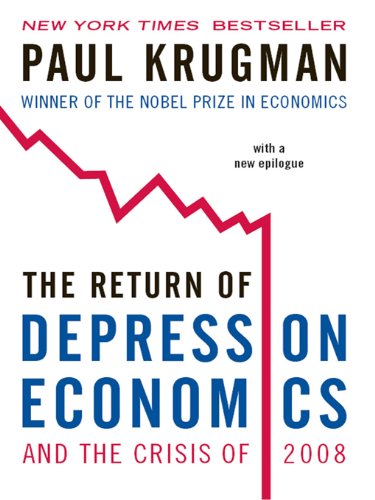Dirty Secrets: How Tax Havens Destroy the Economy, Richard Murphy, Verso, February 2017, pp. 216, $23.95, ISBN 978-1-78663-167-1
When the mysterious John Doe provided the Süddeutsche Zeitung and the International Consortium of Investigative Journalists with 11.5 million leaked documents that detailed information of more than 200,000 off-shore entities, he cited income inequality as his motive. He said that “decisions have been made that have spared the wealthy while focusing instead on reining in middle- and low-income citizens”. The Panama Papers, as they came to be called due to the origin of the leak, blew the cover on numerous wealthy individuals attempting to conceal their wealth. Mossack Fonseca & Co, the law firm to which the documents belonged, helped individuals and entities launder money, evade taxes, and evade international sanctions. By March 2018, the law firm had closed down, while the repercussions continue to be felt the world over.
Richard Murphy’s Dirty Secrets was written in response to the Panama Papers, though is not a direct commentary on the disclosures. The Panama Papers are a logical product of the failure of two-decade-long international action aimed at tackling tax evasion. As he states, “in too many cases, it appears as if the option of failure was from the outset built into the measures supposedly intended to tackle abuse” (p.4).
For Murphy, takes heavens are about more than just taxation and are but a single activity out of many that are undertaken in the ‘off-shore’ space. Off-shore simply means that “the contractual parties to a transaction recorded in one place are located in other jurisdictions” (p.51). The idea originated in September 1957 when the Bank of England stated that if a bank with a domicile in the UK recorded a transaction between two parties that originated from outside of the UK, then the transaction is to be said to have taken place ‘off-shore’. Off-shore is therefore vague, while the tax haven can be identified. The first to be identified as such were in the US. In the 1880s, New Jersey passed legislation aimed at inducing corporations to move from New York. In 1898 Delaware followed suit. Currently, Delaware boasts more than 1 million companies for its population of roughly 950 thousand.
Attempts to tackle the issue of taxation arose in the late 1990s, with the publication of OECD’s report which characterized tax havens as those jurisdictions which have: no or only nominal taxes; lack of effective exchange information; and lack of transparency. This approach was then adopted by the European Commission in its 1997 Code of Conduct on Business Taxation. Tax haven jurisdictions intentionally create regulation for the primary benefit of entities not resident within their borders. Moreover, the lack of transparency or intentional veil of secrecy was aimed to protect the users of this regulation and to obscure their identities. Murphy rightly argues that rather than being tax havens, which conjure the images of the islands in the Caribbean, we would position ourselves better by viewing these regimes as “secrecy jurisdictions”. This shifts the focus from tax on to secrecy and a broader range of activities aimed at evading financial obligations. Most importantly, it allows for a more holistic analysis that takes into account reasons for such behavior that extend beyond the notion of tax. We see that following the secrecy analysis Belgium and Austria emerge as a tax haven in Europe.
The transactions that tax havens record have a real economic impact elsewhere. A tax haven is, therefore, a conduit. It offers three products: companies, trusts, and foundations (trust’s common-law variant). Tax haven companies do not trade but act as mere account managers. They do not add value to the world economy. The suppliers of this critical good that hides wealth are politicians in the havens themselves and a small force of accountants, lawyers, bankers, and wealth-managers. Taken together, this group are likened to the ‘Pinstripe Mafia’. They are easily identifiable and are to be found in the offices of the Big Four accounting firms or in the Society of Trust and Estate Practitioners (STEP).
Tax havens, or ‘secrecy jurisdictions’ have real-life consequences. Murphy analyzes the connection between the sum of total tax lost as a result of a tax haven and the value of development funding. Billions are lost in tax revenues to both developed and more importantly developing countries, who feel the impact of less revenue collected. In developing countries tax revenue represents the main source of government funding that is then dispersed across the society to fund infrastructure and social services. Lack of revenue collected forces the developing countries into aid dependency, which leaves the country at the mercy of creditors while removing their autonomy. Moreover, tax havens lead to concentration of wealth. Given that most companies operate on retained profits, tax havens also distort competition that ultimately affects the consumers.
Murphy hopes to save capitalism from itself.
Secrecy jurisdictions must be tackled. According to Murphy, public country-by-country reporting offers a possible solution. This means that a company is to furnish 7 pieces of data: “information from sales made from each jurisdiction in which they trade, split into sales to consumers and sales made to companies within the corporate group…profits earned before tax, and tax paid in each country…the number of people employed…and the total value of the investment the company has made in the jurisdiction split between share capital and retained profits” (p.129-130). Up until now, companies have not been required to provide a breakdown of total group activity, as the company subsidiary is treated as an individual entity separated from its global operations. Moreover, registers of beneficial ownership of companies or trusts would be required. Murphy suggests that tracing the ownership to a particular point of origin would be crucial in understanding the legal obligations of such an entity and would lower the risk undertaken by transactions. Lastly, reforming the corporate tax would be necessary. Murphy proposes the Alternative Minimum Corporation Tax (AMCT) – a unitary tax whose goal is to ensure that a minimum rate of corporation tax is paid on the declared profits. AMCT would be a tax set below the corporation tax rate in most countries because it is designed to supplement the local ones. AMCT would be applied to the global profits of the company. The collected tax would then be distributed to the jurisdictions in which the company trades.
Murphy’s analysis and proposals hinge on his assumption that the societies are going to continue to be organized along the lines of a capitalist form of production. He states that “markets would be fundamentally different without the existence of tax havens” (p.162). He sees tax havens, or secret jurisdictions, as an anomaly of capitalism; something that makes the economic system function in a perverse way. There is nothing to suggest that a country-by-country reporting or the AMCT would lead to a more equitable taxation rate that would be disbursed accordingly or that the behavior of profit-seeking corporations wouldn’t simply shift the burden on to labor in the form of more extreme exploitation. Murphy focuses on the procedural aspect of taxation, rather than the substantial. Even within the non-secretive jurisdictions, legislation is prone to corporate capture which can skew the taxation rates towards the wealthy.
Moreover, Murphy’s assumption is that fair tax collection would make the state stronger, which would then be able to re-invest into the economy and the society in the form of social welfare provision. However, that is clearly not the case. Since the 1980s, and the consolidation of liberalism, the state has been on the retreat. The Washington Consensus, which Murphy himself mentions in the book, called for broad tax base with moderate marginal tax rate, which has in practice meant lowering the marginal tax rate (tax on the extra dollar earned), thereby concentrating wealth at the top. For example, at the height of the financial crisis in Greece in 2012, when the pensions were dropping 25% and everything was being taxed, the Greek state failed to extend the tax to the shipping magnates. The magnates argued that the tax would hurt their international competitiveness and would cost Greece jobs. In effect, the more the wealth concentrates, the more beholden the State is to it. To suggest that there could exist a tax regime that would affect the corporations implies that the State has the power to act autonomously in relation to the businesses. More often than not, this is not the case.
While tax havens do pose a significant problem for economies of the developing countries, their elimination will not solve the ills of capitalism. For that, we need to change society itself.




